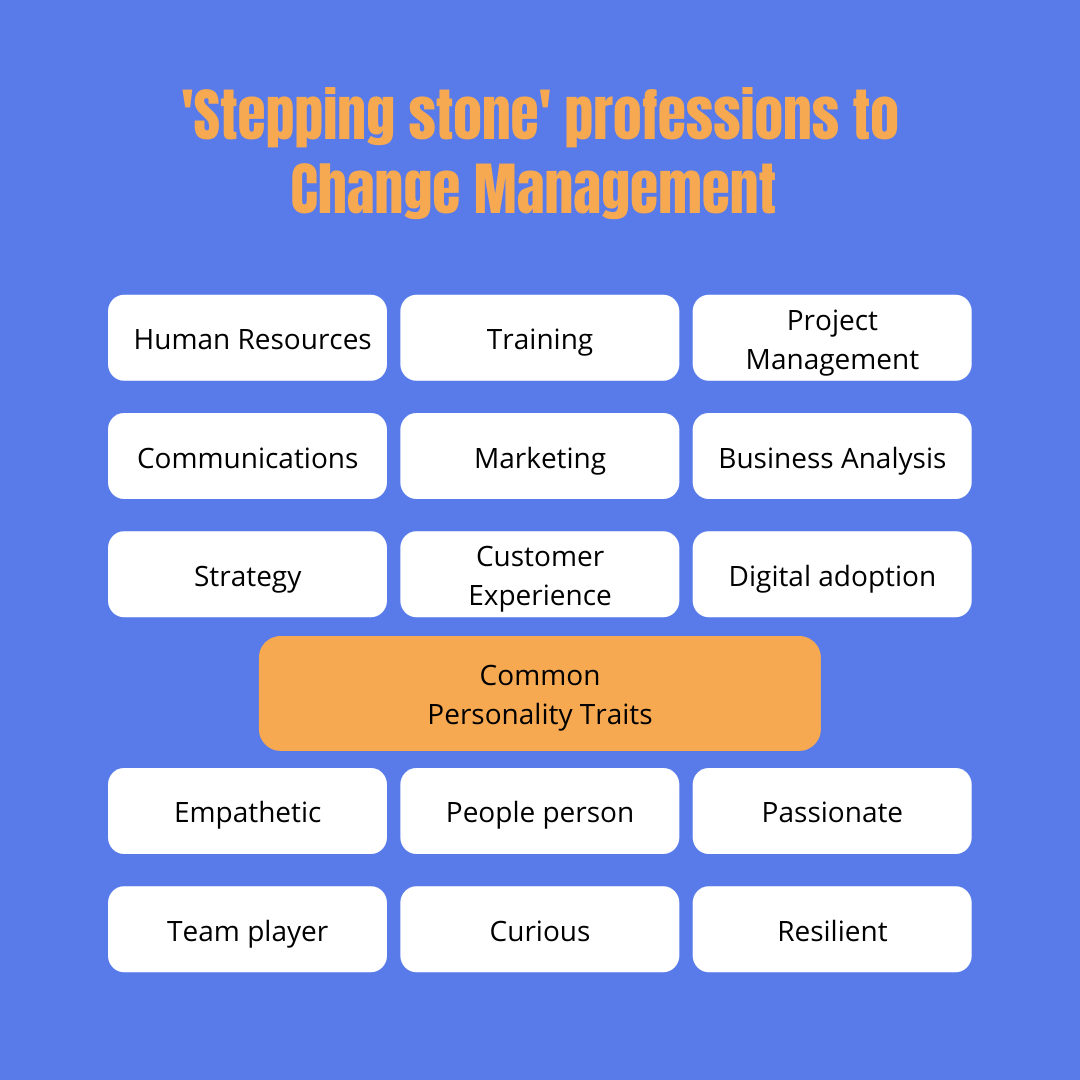Looking to get into Change Management? Here's how..

Many times I have been asked - 'So Therese, how do I get into Change Management?' 'What course should I do?', 'What experience do I need?.' Well in such a competitive and also in demand market like we have now, employers are looking not just externally for Change Managers but more and more are looking at a number of strategies to build change capability in their organisation. That being said, there is no better time to get into Change and here are a number of things for you to consider and paths you can take to managing change in organisations.
Pathway 1: Complimentary experience and basic skills. There are many 'feeder' jobs that are on the pathway to Change Management. Human Resources, Learning/Training, Project Management, Senior Business Analysis. Yes, all of these are typical pathway disciplines, with many Change Managers having these backgrounds on their resumes. For me, I started in Marketing and Communications. I have experience in Customer experience as well, then moved into projects and then settled into Change once it actually became a well recognised discipline. When I was in an interview many years ago, I had the interviewer mention that my resume read like a 'journey' of skill development and career development. I had never thought of it that way as I just continued to move into challenging roles but it certainly then made me think about next steps more from that point onwards. So if you are considering change as your next step, think about how your experience lends itself to taking that step.
While you may be currently undertaking a different role, look to get some foundational learning under your belt and then apply those skills in your existing role. Learning doesn't have to be expensive for you to get a sense of what managing change in organisations entails. This could be via an online course and then putting your hand up to take on a project where you can apply your newly learned skills.
Depending on your budget, LinkedIn learning now have some Change Management courses and of course I offer a 'basics' course as well, which gives you templates and practical tips for implementing operational change in organisations. Whatever you choose that is a great first step. It will also help you choose whether managing change is a career you want to pursue.

Most employers require some experience and then it comes down to the entry role for you.
Pathway 2: Start in the entry level position. Whether it be a Change Analyst (CA) or Change Manager (CM). Sometimes entry level is appropriate depending on where your career currently is up to.
For Change Analysts: Typically this is an entry level position for a Business Analyst looking to get into Change. Why this role? The Business Analyst would be best to go for the CA role first as they will have strengths in analysis. Depending on how strong the individual is with their communication skills, the time in a CA role may be relatively short if they are mature in their approach. If they are a quick learner, then the transition to Change Manager can be swift.
Now I do know that Business Analyst's can also have different backgrounds. Experience has shown that those who are business focused more than IT specialists are those who move well into Change.
For Change Managers: If you are working in HR or Learning and once again have foundational learning in Change you could move into a Change Manager role. This is due to the stronger complimentary skillsets. Senior Business Analysts could also be considered for a Change Manager role due to their experience.
Pathway 3: Gaining experience on the job. If you have a Change practice in your organisation, another way into change is to do a secondment in the team to get an idea of what is covered. If one doesn't exist, then get onto a project where a change manager is allocated so you can learn from them. Many times I have worked with business project team members who then run their own change projects once we have completed ours as they learn the best approach to take to change.
It is another pathway into change.
So you don't have to spend thousands on accreditations when you may be uncertain as to whether a career in Change Management is for you. But I do recommend you invest in the basics, then apply those skills, and invest further if you enjoy the challenge of change as much as I do.
Stay connected with news and updates!
Join our mailing list to receive the latest news and updates from our team. Your information will not be shared.



